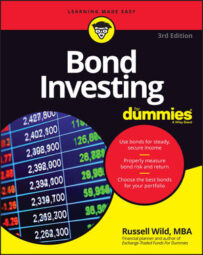Very short-term, high-quality bond funds are going to pay slightly higher rates of interest than money market funds and CDs but less than longer-term bond funds. They carry very little risk of default and have minimal volatility. Sometimes referred to as near-cash, these bond funds are often the best investments for money that you may need to tap within one to three years.
Fidelity Spartan Short-Term Treasury Bond Index Fund (FSBIX)
Contact: 800-544-6666; Fidelity
Type of fund: Actively run mutual fund
Types of bonds: Short-term government bonds
Average maturity: 2.8 years
Expense ratio: 0.20 percent
Minimum investment: $10,000
This is a convenient place to park your short-term money, especially if you’re building a portfolio at Fidelity.
State Farm Interim (SFITX)
Contact: 800-447-4930; State Farm
Type of fund: Actively run mutual fund
Types of bonds: Short-term government
Average maturity: 2.8 years
Expense ratio: 0.16 percent
Minimum investment: $250
Generally, insurance company mutual funds stink; this is a notable exception! The low minimum investment is nice.
Vanguard Short-Term Investment-Grade (VFSTX)
Contact: 800-662-7447; Vanguard
Type of fund: Actively run mutual fund
Types of bonds: Short-term government and high-grade corporate
Average maturity: 2.7 years
Expense ratio: 0.22 percent
Minimum investment: $3,000
If you have $50,000 to invest in this fund, you are eligible for the Admiral Shares class (ticker VFSUX). You’ll be investing in the same fund as VFSTX, but the expense ratio drops to 0.11 percent.
Vanguard Short-Term Bond ETF (BSV)
Contact: 800-662-7447; Vanguard
Type of fund: Index exchange-traded fund
Types of bonds: Short-term government and high-grade corporate
Average maturity: 2.8 years
Expense ratio: 0.11 percent
Minimum investment: None
This fund is also available in mutual-fund form under the tickers VBISX (minimum investment $3,000, with an expense ratio of 0.22 percent) and VBIRX (minimum investment $10,000, with the same expense ratio as the ETF, 0.11 percent).

